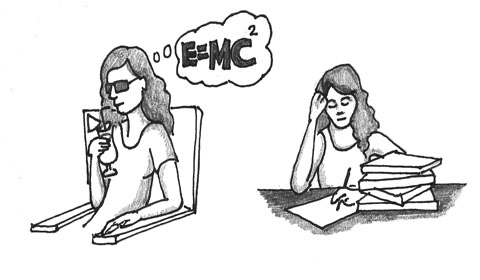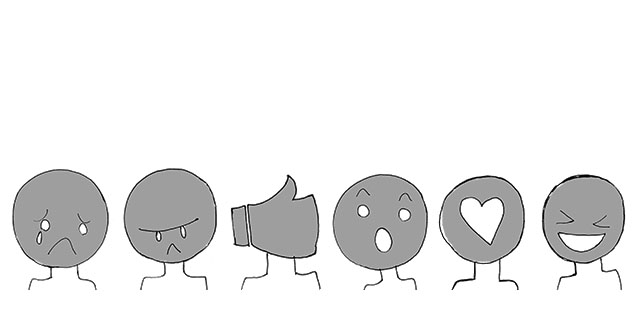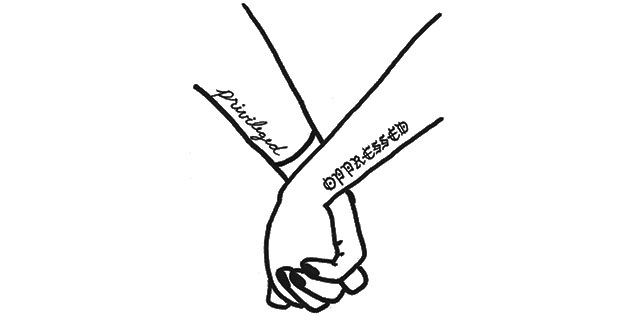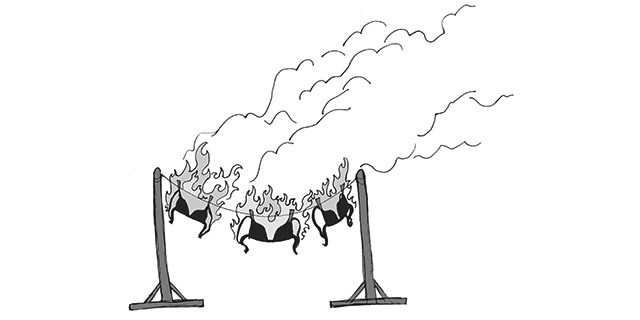
People come up to me all the time and say, “So, I guess since you are smart, you don’t really have to do any work, right?” I never really know how to respond. On the one hand, maybe since I am smart, if I were in all regular classes, I wouldn’t have to try as hard, but I chose my schedule with the goal of stretching myself, so my four AP and one Honors classes last year definitely forced me to work hard. When people assume that I was born with natural intelligence, it diminishes the reality of my achievements and what it took to achieve them– endless hours slaving under a desk lamp and countless Friday nights spent at home with my AP European timeline and Louis XIV as my only companions. Despite the common misconception, let me clear one thing up. There is a huge difference between being naturally smart and working hard.
At Marlborough School, everyone is generally smart, meaning that we are able to grasp concepts, apply knowledge and respond to new situations well. There is, of course, a range of intelligence levels within Marlborough, but as a whole Marlborough students don’t have much to worry about as far as intelligence goes. However, I think that many girls at Marlborough are frustrated because they feel they work as hard as they can but still don’t seem to achieve the same results as their classmates.
While I am sure that, to some, achieving high grades looks effortless, I can basically guarantee that most students at Marlborough, even those who make school seem easy, work very hard. Because of each girl’s individual circumstances, it is difficult to compare grades and test scores, the alleged final results of academic achievement.
Despite popular belief, natural intelligence is not always beneficial. At the beginning of middle school and through high school, naturally smart people do not have to work as hard as some of their peers to do well, because they can generally grasp more information. They may not develop study skills or know what it is like to face failure and learn from their mistakes in order to excel. They are used to being the best in their classes and always understanding everything. So when these students reach harder classes at the end of high school or in college, they may not know what to do. They may not know how to react to doing poorly, and they get frustrated and give up.
However, students who face adversity in high school and middle school, where they begin to understand their own learning styles and how to succeed on their own, are more able to deal with bumps later in life and can overcome them with ease and grace.
In the context of sports, people often say, “Hard work will take you further than natural talent,” and I believe that this saying is applicable to all aspects of life. Hard workers set themselves up for better possibilities in the future and are more likely to achieve success later in life. People who are naturally smart can get lazy; just doing the bare minimum, knowing that it will suffice for a while, can be problematic later in life. So even if you feel like your attempts are futile now, keep going. Soon your hard work will pay off!










